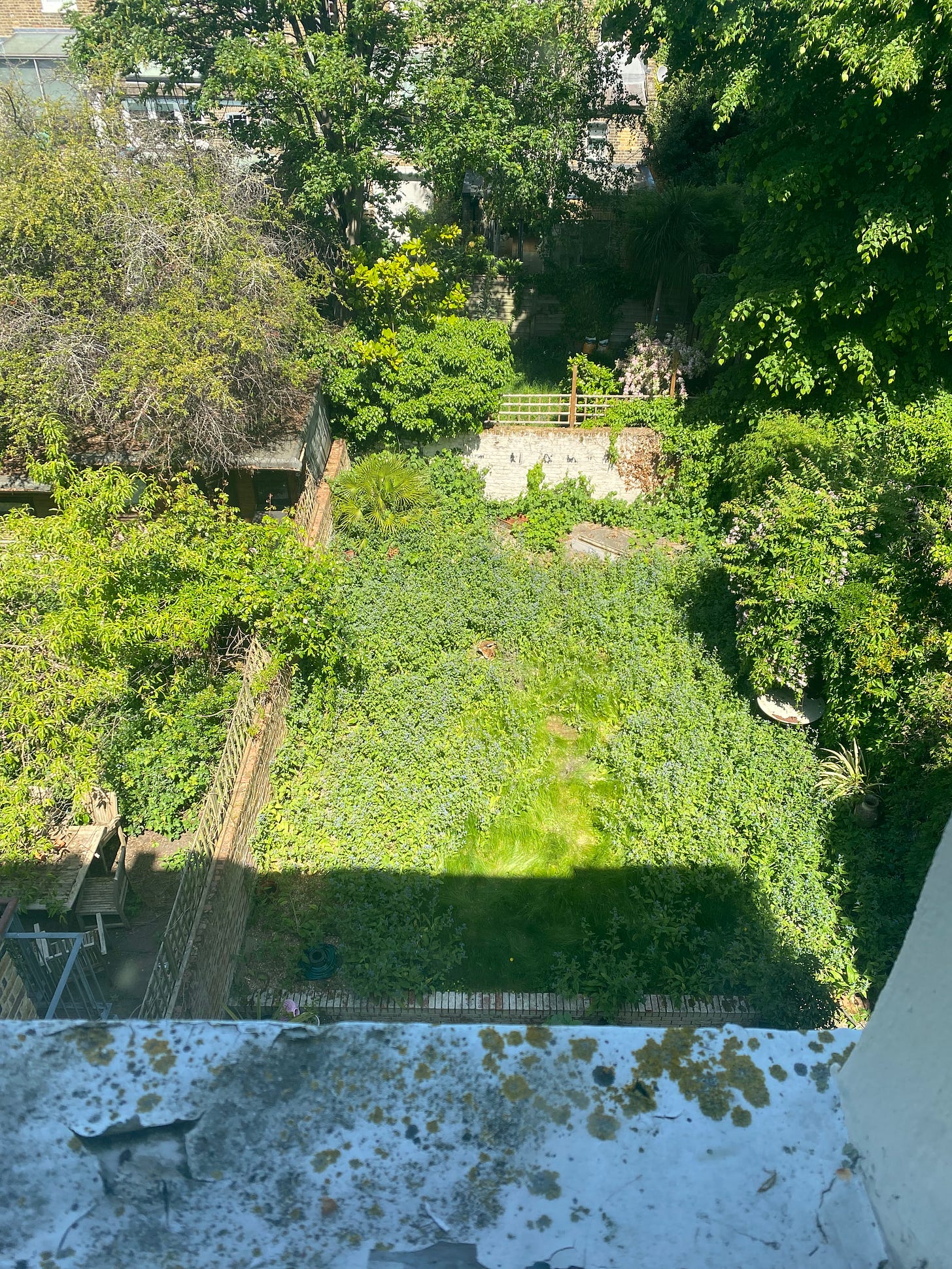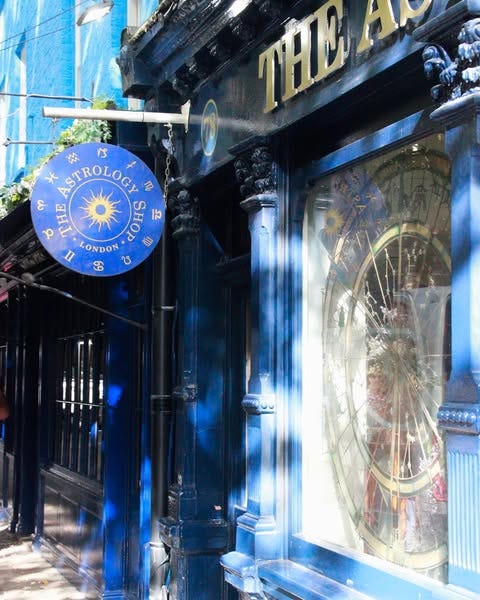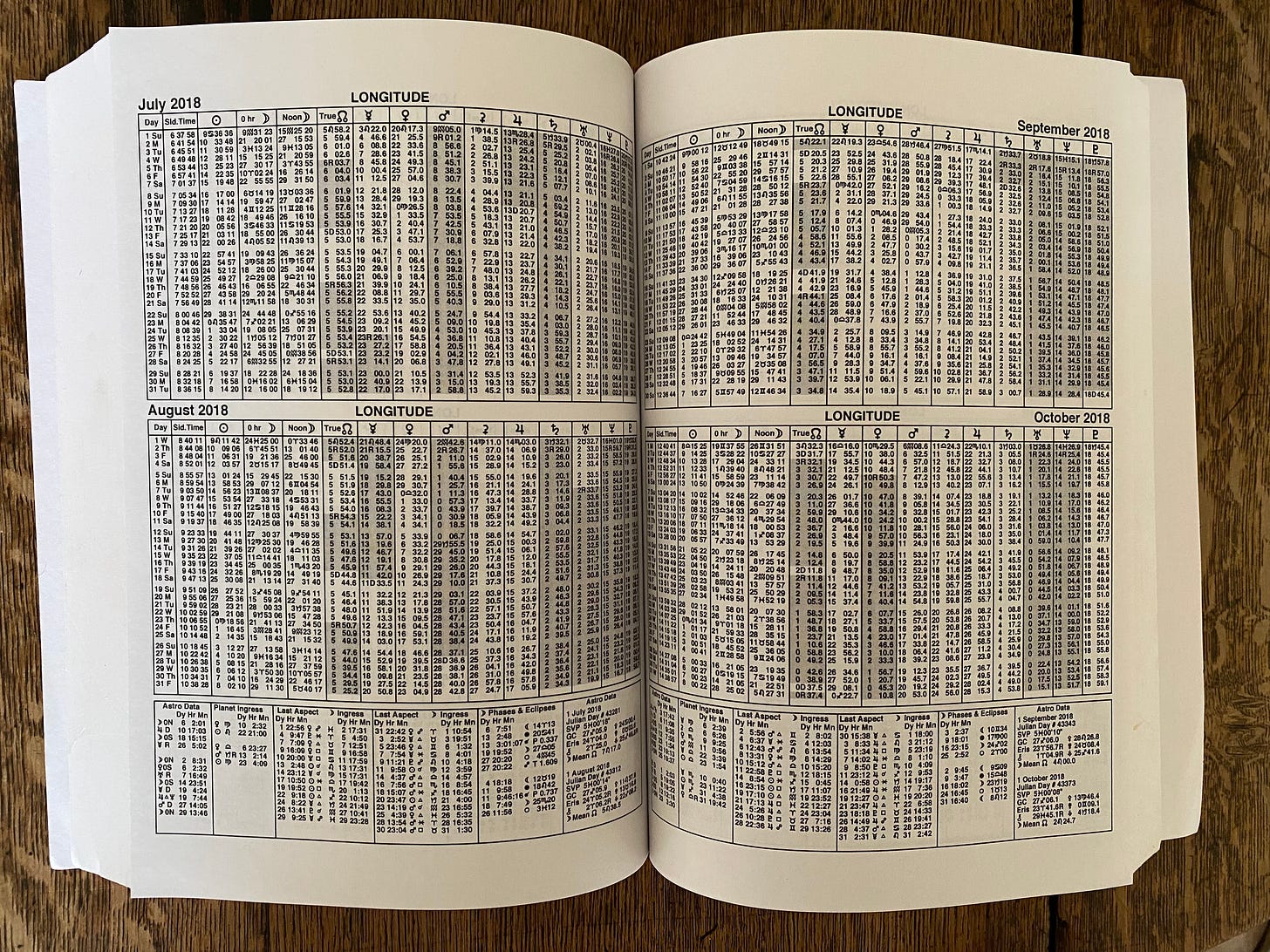I’ve been silent on here for a while, not intentionally. It just fell by the wayside as I spent more time working on a new novel, looking for a new place to live, picking up a new hobby (improv), and delving deeper into an old one (astrology and tarot). I also officially became a permanent resident of the UK, further muddling my answer to the question ‘where are you from’, but at the same time putting a stop to it. I live in London; that’s really it. It’s a place I feel ‘resourced by’ – a term I picked up from astrologer Sabrina Monarch.
In the context of Evolutionary Astrology, which I am currently studying, I think ‘being resourced by’ a place means when a place – through its landmarks, people, nature, and goings-on – is able to re-source you; as in allows you to return to source. Source could mean the universal soul from which we all come and go, the divine, God, the universe, whatever you want to call it. A place that resources you should feel familiar but not predictable, leaving space for you to be surprised. The more you get to know your neighbours and people who share a place with you, the more a place resources you. (Kieran McLean’s essay ‘On Building a Life as a Foreigner’ encapsulates this sentiment really well.)
I feel at ease in London because there are so many other people here from other places. This has the wonderful side-effect of a never-ending list of great dining options. It also means a multi-faceted arts scene; the other night I saw a guitarist who also plays the drums on his guitar so it sounds like a small orchestra. OK, OK, but these are true of any metropolis, you might say. But what I think is unique to London, and what I love the most, is that ‘100 little villages with a few central hubs’ quality. These villages have their local pubs, lots of greenery, and foxes scurrying everywhere. London’s many inexplicable street names never cease to delight me. Like ‘Poultry’. I get that poultry was slaughtered there but did they forget Street or…? ‘Poultry’ is the opposite of another head-scratching London street name, ‘Avenue Road’ – which over-explains the way ‘Poultry’ under-explains. Also, ‘Hanging Sword Alley’. There is a story lurking behind every corner of London, and it’s probably bleak. Which gives it a narrative charge I find irresistible.
The other morning, I looked up the day I moved to London in my ephemeris, a series of tables that tells you the position of the planets on every single day over the course of 100 years.1 This is the kind of data you could easily look up in a free astrology chart calculator, which might be why it was so difficult for me to procure a print version. I couldn’t find it online, unless I was willing to pay an exorbitant price, so I had to visit The Astrology Shop near Covent Garden to get a copy.
An ephemeris is kind of like an antique car or fountain pen. It’s not practical, but it’s very old school, very pure, and makes you feel really connected to a process; lets you slow down and savour it. An ephemeris reminds me of how closely tied astrology is to mathematics. It is, arguably, the world’s first spreadsheet, if you think of astrology as a precursor to data analytics. I like using it to ‘decode’ certain potent days of my life, trying to find the astrological explanation for why it was so significant – a method I learned from astrologer Joanna Watters, an ephemeris devotee who hand-draws client charts. (Her newsletter is awesome; sign up for it here.)
For example, the day I moved to London, Jupiter (overseas travel) crossed my natal Pluto (endings). This was not a move I made for love (Jupiter crossing Venus) or career (Jupiter crossing Saturn). I moved to London because I had always wanted to. It was an idea that took hold of me when I was a child and never let go, a subconscious driver of a lot of my decisions. I knew when I got on that plane I would do everything in my power to never go back. It was deep. It was Jupiter crossing Pluto.
The process of decoding days in the ephemeris feels a lot like fiction writing, in that you analyse a particular day or memory (either your own, someone else’s, or an imagined scenario), and retell it as a story, with a heightened awareness of the ideas and emotions underpinning it. (Astrology is, I believe, a form of storytelling.) In Ghost Chilli I was afraid to make the story stray too far from the reality of my life because I did not trust I could make things up without it seeming fake and unbelievable. But then a few different people who read the book said the parts that actually did happen felt unbelievable, while the ones I made up ‘obviously happened’.
The novel I am working on now has become an exercise in how much I can distort reality so that it’s unrecognisable from my life. What started out as a way to avoid the ‘is this based on your real life’ speculation that I dreaded has now become a fun game between me and myself. I sometimes worry that I will get so lost in my own puzzles that I will never finish the book, but I am planning to, and hope it will work out the way London did.
There is an old episode of the Champagne Sharks podcast on the infamous Bad Art Friend feud, which I think about often. One of the writers in the feud copied another writer’s Facebook post word-for-word in her short story ‘because it was just too good’. The host more or less asks: Isn’t it your job as a fiction writer to make shit up?
At first the comment made me worry that I was not equipped for fiction writing, but the more I’ve sat with the question, I realised it is my job as a fiction writer to make shit up – to analyse why a set of casually spoken or written words are so good, recreate it in my own words, an insert it into a fake scenario that has some vague resemblance to the real life event that inspired it, but it’s so compelling that nobody cares what actually happened. The fictional story, or the astrological interpretation, becomes more interesting, because it is more relatable. Everybody has experienced Jupiter crossing their natal Pluto and it probably did not involve emigrating overseas. Capturing the energy of a transit like that, rather than the specifics of what happened for me, is what I am now trying to do with my fiction.
Notes:
Do you want me to analyse a potent day in your life in the ephemeris? Send me a message (reply to this email).
Check out Cameron Steele and Med Madden’s video on the Judgment card here. I am so excited for more of these.
I don’t think I’ll be able to resume my fortnightly schedule here, so it will be more random. I wish I could just write without overthinking but it always takes me ages. I also want to broaden the focus from tarot and astrology, but haven’t figured out how to do it yet, which I think is fine. (I’m in my Hanged Man era.) When I started this Substack I wanted it to be more lifestyle / culture-based, i.e. ‘three things to do / read / eat’ etc. – because then I wouldn’t have to worry so much about getting every word right. But I talked myself out of it because it seemed frivolous. But I’m pretty into frivolity, and I love writing about places I visit in London / other places. I am a travel blogger at heart.
My novel, Ghost Chilli, is available for purchase in the UK, India, and some parts of Europe (here, here, here), and the paperback will be out in July. It will be out in the US in October 2025 (pre-order links here and here).
I am very, very convinced that 100 Years of Solitude was inspired by an ephemeris.







January 13, 2024 please!
The 9th of April 2025 please for an ephemeris check